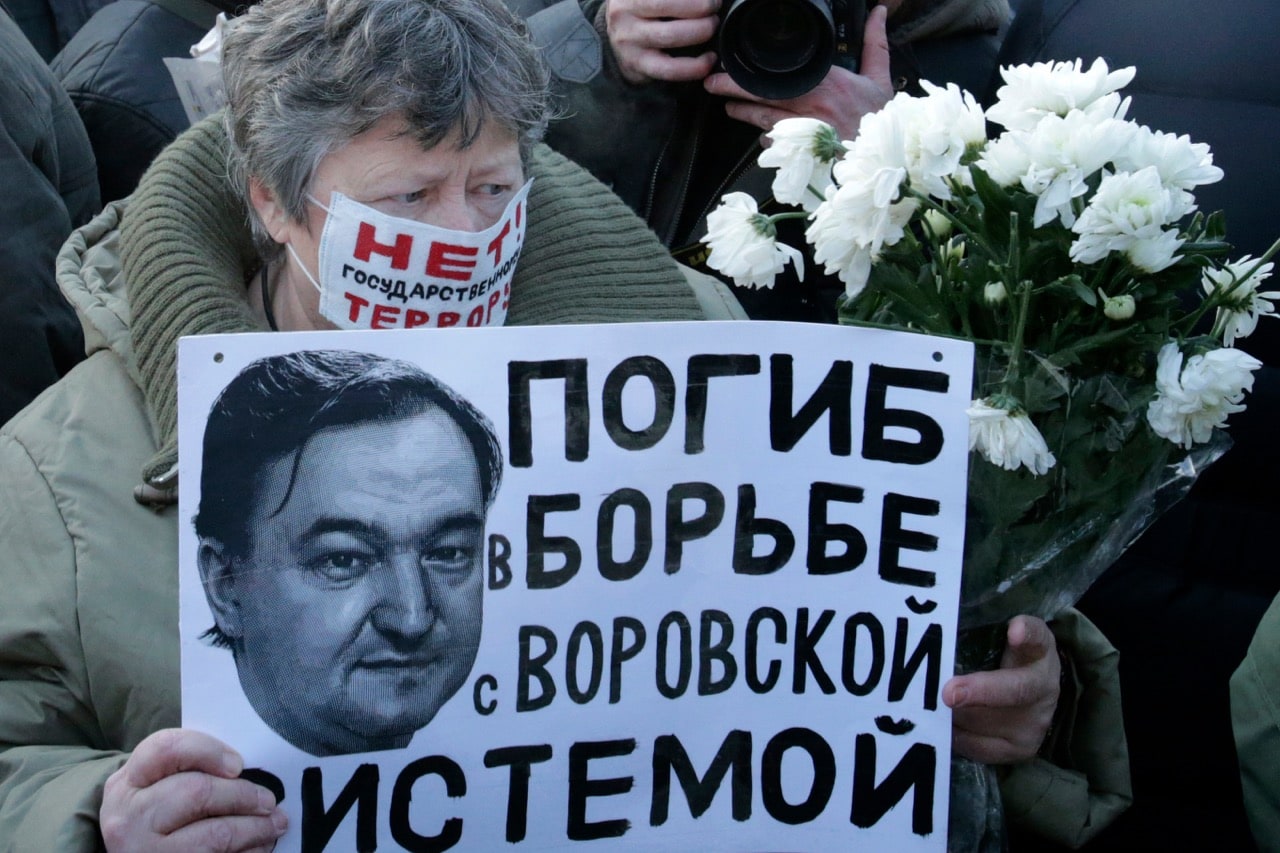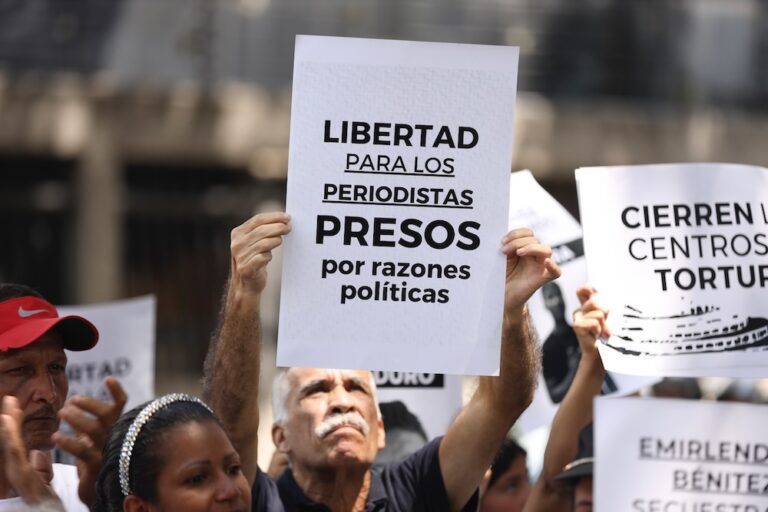The Magnitsky Act offers an alternate route to justice in cases of impunity, and one that civil society should engage with, but - as Elisabeth Witchel reports - it's not without challenges, and may even fall victim to its own success.
On January 15, 2017 a Bahraini firing squad ended the life of Ali al-Singace. His execution sentence for a 2014 bombing that killed three policemen followed a confession extracted under torture. He was just 21 years old.
Two other men were executed alongside al-Singace that day under the same circumstances. Despite international calls for redress, allegations of torture against all three men were never investigated.
They are three cases from a long line of human rights abuses that have taken place in Bahrain since peaceful protests in 2011 were blunted by a government crackdown that continues today. Among the recent victims was Ebtisam Alsaegh, subjected to torture and sexual assault during an interrogation by Bahrain’s national security agency (NSA) in May of this year. International condemnation and vigorous campaigning by human rights groups have done little to temper the state’s increasingly severe rights infringements or see their perpetrators held to account.
“Since 2011 we’ve been calling for greater accountability, and we’re frustrated that only the most low-level police have faced consequences, and minimal ones at that,” says Michael Payne, Director of Advocacy of Americans for Democracy & Human Rights in Bahrain (ADHRB).
Over the last year, human rights groups have been testing a new tool to redress violations in Bahrain and other countries. In September 2017, a consortium of 23 groups led by Human Rights First that includes ADHRB and several other IFEX members submitted case files aimed at getting over a dozen individuals or entities sanctioned by the US government under a new legislation. Though results this round were disappointing in many respects, human rights advocates still see the law as an opportunity to advance justice and curb abuses.
The Global Magnitsky Human Rights and Accountability Act, which became law in December 2016, authorizes the US president to impose visa bans and freeze the assets of foreign individuals responsible for gross violations against rights defenders and government officials or their associates who have engaged in significant acts of corruption. In practice, those placed on what is referred to as the Magnitsky list can be prevented from entering the US, and any property they hold in the US can be seized, a stinging blow to those who oppress citizens in their home countries and then use their status or wealth to travel freely. The law also allows entities in addition to individuals to be put on the list. In this case, a named corporation or even a government institution would see any property and interests within US jurisdiction blocked.
To test these new waters, the groups sought to highlight a range of violations, victims, and responsible actors in the dossiers submitted. Those named vary in rank and position. In the torture and execution of al-Singace, the groups make the case that Ali bin Fadhul Al Buainain, Bahrain’s Chief of Public Prosecution, was accountable for gross violations of human rights for both failing to act on allegations of torture and for pursuing the death penalty based on coerced confessions. “We wanted to look at someone who is really responsible where there are systematic abuses,” says ADHRB’s Michael Payne, “someone with command responsibility.”
ADHRB also took an entity – the National Security Agency – to task. Drawing on testimony from Ebtisam Alsaegh and others, they argued the agency should be listed. In total, the groups jointly submitted names and entities from 15 countries – Azerbaijan, Bahrain, China, the Democratic Republic of the Congo, Egypt, Ethiopia, Liberia, Mexico, Panama, Russia, Saudi Arabia, Tajikistan, Ukraine, Uzbekistan, and Vietnam – with evidence connecting them to egregious acts.
Magnitsky laws are the brainchild of William Browder, a UK-based former hedge-fund manager whose friend and lawyer Sergei Magnitsky was jailed and tortured after attempting to expose high level corruption in Russia. Magnitsky died in custody in 2009. Frustrated that no one was held to account for Magnitsky’s ill-treatment, Browder tried another tack.
With support from US Senators John McCain and Ben Cardin, he got the Sergei Magnitsky Rule of Law Accountability Act of 2012 adopted. This version, which is still in use today, applies only to Russia. Today there are dozens of names on the list connected to Russian violations, including Alexander Bastrykin, Russia’s top investigator. In addition to those linked to Magnitsky’s death, the suspected gunman and an accomplice to the 2004 murder of journalist Paul Klebnikov are named. In December, five more figures were added by the Trump administration, including Chechen leader Ramzan Kadyrov and the head of the Chechen Ministry of Internal Affairs Ayub Kataev, for “gross violations of internationally recognized human rights,” according to the US Department of Treasury’s Office of Foreign Assets Control.
Magnitsky laws have spread quickly. In addition to the US global Magnitsky act, four other countries have adopted similar legislation. Estonia and Lithuania passed Magnitsky laws, and earlier this year the UK introduced the Criminal Finances Act, which allows authorities to recover proceeds of gross human abuses overseas that are housed in the UK. The policy, according to Caroline Craig, senior press officer at the UK Home Office, will not however feature a list of names.
In early November, Canada issued its first round of sanctions under the Justice for Victims of Corrupt Foreign Officials Act (Sergei Magnitsky Law) that its parliament passed in October 2017. The list targets 52 human-rights violators in Russia, Venezuela and South Sudan, according to news reports.
Several other countries appear to be ready to follow suit. Members of Sweden’s parliament are campaigning for a version, and according to Browder, campaigns are also making headway in the Ukraine and South Africa.
“It’s clear we’ve reached a tipping point,” said Browder. And getting France and Germany on board next is key. “These countries will tip the balance of getting an EU-wide Magnitsky Act. I don’t expect the process to be easy, but we have accomplished so much more than I expected recently, that I think anything is possible now.”
Magnitsky laws offer some correction to a paradoxical global injustice in which actors from repressive countries can operate with impunity at home and also benefit from their wealth abroad, even in countries that see themselves as champions of rule of law and human rights. “They impose sanctions and restrictions on us; they harass us, and they are welcome in Europe,” explains Khadija Ismayilova, an award-winning investigative reporter from Azerbaijan, one of the countries included in the tranche of US submissions by human rights groups in September. “Their family members receive medical treatment and education in Europe and anywhere else, while their people are deprived,” adds Ismayilova, who was imprisoned for a year and half and has been under a government-imposed travel ban since her release.
Targeted sanctions against these individuals and entities, proponents say, do more than offer recourse for victims who otherwise have none. They can bring exposure and scrutiny to bad practices, which in turn can pressure states to respond. In the case of Bahrain, says ADHRB’s Payne, the impact could be broad. “If their people are having their assets frozen or can’t travel to the US, the image that projects, and the rebuke of their system, has potential for huge repercussions. It will put them in a position where they must disprove, or reform.”
In at least one instance, the threat of travel bans appears to have had an impact. In September, one US senator proposed an amendment to the State Department and Foreign Operations Appropriations Bill calling for travel bans against Azerbaijani officials. Shortly afterwards, journalist Mehman Aliyev was released from detention.
Despite the potential of Magnitsky laws to advance human rights, there remain many challenges for activists seeking to utilize them. In the US it falls mainly on the departments of justice, state and the treasury to review and determine names, though several Senate committees can also submit names. The point of engagement for NGOs is in providing recommendations for sanction targets, along with documented case material, to these offices. The law states that credible information from human rights and corruption monitoring groups will be considered, and, according to one state department official, they welcome and encourage collaboration by non-governmental organizations. Despite this invitation, the majority of names proposed by NGOs this year have not been sanctioned.
On December 21, 2017, the US administration announced the first wave of sanctions issued under the Global Magnitsky Act. The list comprises 15 foreign individuals and 37 entities, some implicated in IFEX member campaigns. It includes former president of The Gambia Yahya Jammeh, as well as Yankuba Badjie former Director General of the country’s national intelligence agency. A Guatemalan congressman accused of ordering an attack in which two journalists were killed is also on the list.
Of the names put forward jointly by non-governmental organizations in 2017, at least three were sanctioned: Artem Chayka, son of Yury Chaika, Russia’s Prosecutor General, who is suspected of using his father’s position to pressure business competitors and win lucrative state contracts, Maung Maung Soe, a Burmese military commander responsible for human rights violations against that country’s Rohingya minority population, and Gao Yan, a senior Chinese police official involved through command responsibility in the arbitrary detention, torture, and death of human rights activist Cao Shunli, according to a statement by Human Rights First.
Several organizations welcomed this first round of names, but expressed disappointment that figures from many countries with records of human rights abuses and corruption were left off the list. Most notably, no one from the Middle East or Azerbaijan was sanctioned. In neither of the two cases ADHRB submitted were designations made. In a statement, ADHRB notes, “we are disappointed that the Trump Administration has failed to take up cases presented regarding serious human rights abuses committed by Bahraini government officials.”
Annie Boyajian, advocacy director at Freedom House, one of the organizations involved in providing evidence this year, points out that the list has some important names on it. “That being said, the list could have been much stronger with the inclusion of additional names submitted by the coalition,” she adds. “It’s a huge missed opportunity that there are no Middle East cases, for example. And, some of the individuals sanctioned have higher level officials who were also complicit.”
The departments of state and treasury have not elaborated on why some names were not designated, but security and political considerations are one possibility. Under the wording of the Act, the government can opt not to put an individual or entity on the list, despite the evidence, if it is deemed damaging to national interests. As Browder notes, “Even if evidence warrants consideration, the department of justice can say this may be damaging to our national interests. On a political level they can say they don’t want to pursue the case.”
Despite the setbacks encountered during the Act’s first year of implementation, human rights groups see continued engagement with the legislation as useful. “The law does require the administration to consider information submitted by NGOs, which provides a unique opportunity for cooperation between the government and civil society,” says Boyajian.
“So, we look forward to providing additional information for their review and we are hopeful that some of the cases we submitted may still be under review.” ADHRB’s Michael Payne also says he hopes their cases are still under review. “We will continue to strengthen our cases and submit additional cases in the hopes that this or any future US administration will fully utilize these tools for international accountability.”
The evidence threshold is high for a Magnitsky designation, and amassing documentation can be a challenge in countries known for impunity and lack of transparency. Khadija Ismayilova points out that, in Azerbaijan, torture and other acts are covered up. “People who report they have been tortured, lawyers who challenge it, or others who talk about it are subject to harassment.” She believes that a more flexible approach is needed, one that includes media reports as a good source of evidence. However, that may not be enough to place someone on the list however. “In order to get someone sanctioned under the Magnitsky Act, you need to present very specific and admissible evidence of human rights abuse,” says Browder.
Magnitsky laws may also become victims of their own success. If this year’s designations have an impact, more and more parties will seek to get names on the list. “Soon the floodgates will open of people submitting evidence, and the teams in various governments reviewing this evidence are small,” says Browder, “so it’s important to make a clear and compelling case.”
Engaging in the Magnitsky list process is not risk free. Browder has been named in multiple arrest warrants issued by Russia, which has also threatened Canada with retaliation for its list. “Groups that are considering a submission should bear in mind they may be taking on powerful, wealthy individuals with resources to fight back,” says Rob Berschinski, senior vice president for policy at Human Rights First.
It is also important to remember that Magnitsky laws can offer an alternative form of justice, but they cannot substitute for it. Peter Klebnikov, the brother of Paul Klebnikov, says that while the list gives notice that powerful individuals cannot commit crimes with total impunity, he will still seek the prosecutions of all his brother’s killers. “Our family continues to hold out hope for justice. We’ve been waiting 13 years. We will wait, and call for justice, as long as it takes.”



